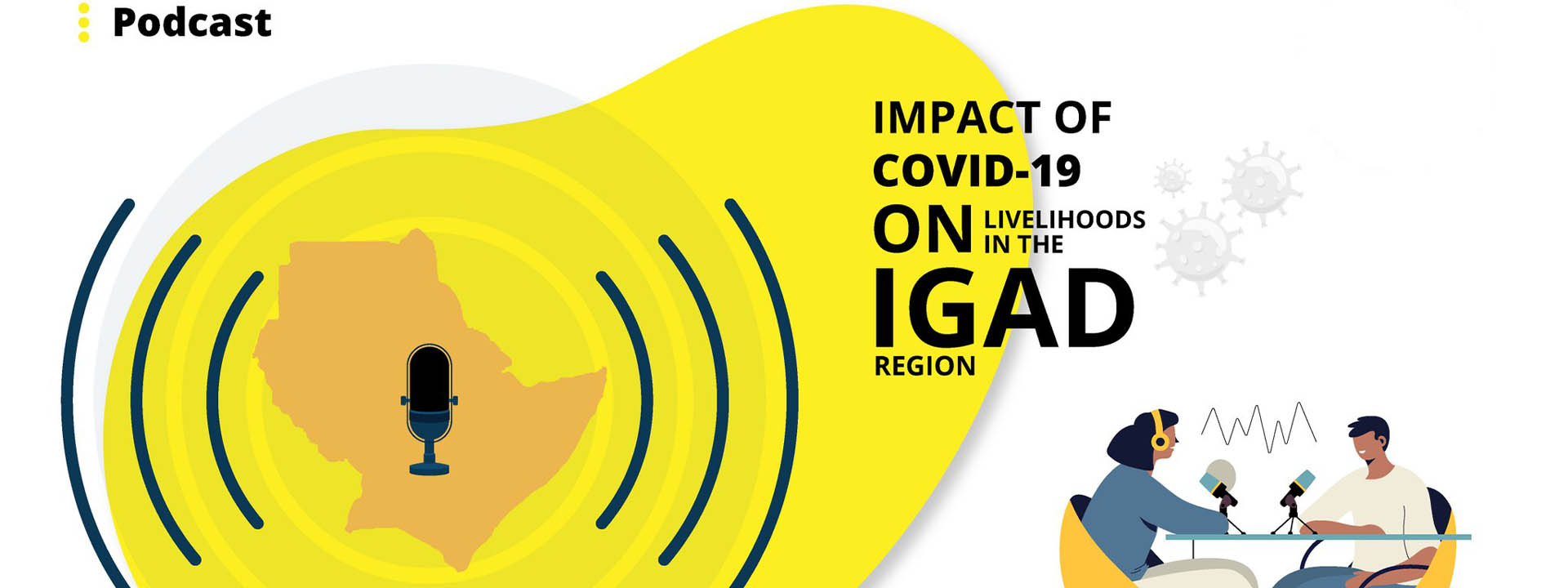COVID-19 pandemic has disrupted the general normal life globally. The IGAD region has not been an exception to this calamity.
In the sectors of trade and tourism, the impact on the populations and economies of the region has been severe as elucidated in the sections below.
TRADE
In trade, the COVID-19 pandemic has had devastating health and economic consequences with unprecedented disruption to people’s lives, the global economy and world trade. Therefore, the IGAD region has not been spared the adverse impacts of this scourge.
Intra-IGAD trade accounts for 15% of merchandise exports and 4% of merchandise imports in the block. Most IGAD member states have recurring current account deficits and have a significantly wide trade deficit in trade in goods than in services.
On average in 2018, food and pharmaceuticals accounted for 15% and 4% of total merchandise imports in the region with huge disparities from country to country.
The COVID-19 global pandemic has disrupted manufacturing and supply chains, with severe consequences for society, businesses, consumers and producers alike.
The Middle East has become a major market for the livestock sector from the IGAD region. However, the pandemic has affected exports revenues of the livestock as trade routes between IGAD and Middle East got locked down.
Overall the IGAD region is heavily involved in food exports which are being impacted by depressed global demand. The region is also dependent on merchandise imports which are being impacted by supply chain disruptions.
The pandemic has triggered global trade challenges with negative impact on exchange rates and domestic inflation rates.
In all IGAD member states employers have down-sized their staff complements which has resulted in loss of incomes for the retrenched employees and the concomitant suffering due to loss of economic livelihoods.
Drastic slowdowns in GDP growth rates are now being felt in all IGAD Member States. A similar pattern is expected at the per capita level, where GDP growth is projected to contract for half of IGAD this year. Fiscal and debt pressures are expected to heighten this year.
The COVID-19 crisis is impacting both government revenues through tax/fees on diminished economic activity and expenditure through increased health, economic and social responses.
While the revenue expectations are mixed, most governments are seeing increased expenditure-to-GDP this year. Some basic foods are experiencing higher prices, which have risen since mid-February across the IGAD region.
TOURISM
Tourism is one of the sectors most affected by the Covid-19 pandemic, impacting economies, livelihoods, public services and opportunities on all continents. All parts of its vast value-chain have been affected.
Export revenues from tourism have been falling, and naturally all IGAD member states have suffered the adverse impact of this global shrinkage in prospects and opportunities.
Tourism is heavily affected, especially international travel. Even after the severe lockdown measures have been lifted, the pandemic itself is triggering lasting effects on the sector through risk aversion and a change in preferences.
As a result of all this, businesses have shut down and laid off employees and this has hurt the welfare of millions of people as well as to the contraction of economies in IGAD member states.
Travel and tourism contribute to GDP (5%) and job creation efforts (5%) in several IGAD member states.
Some of the main tourist destinations rely heavily on non-regional source markets. For example, traffic through the Djibouti and Mombasa ports which had been on the rise was affected by the lockdowns which reversed the rise.
The COVID-19 crisis is likely to have a longer term impact on extra-regional travel than on travel within the region. Intra-regional tourism will account for a greater share of activity in the industry, and governments should increase efforts on promotion of the IGAD region as a common tourism destination and as a common investment area.
Listen to full Podcast at https://youtu.be/2j–5vC7-X4
By;
Joseph Rwanshote
Programme Manager
Trade, Industry and Tourism
Economic Cooperation and regional Integration Division
April 7, 2022

